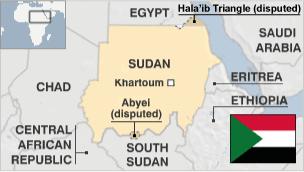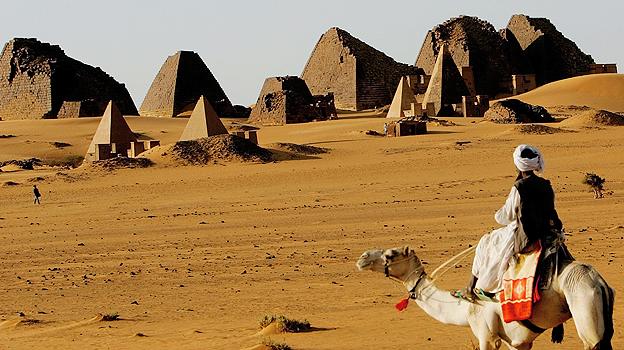Sudan profile - long overview
- Published

Sudan, once the largest and one of the most geographically diverse states in Africa, split into two countries in July 2011 after the people of the south voted for independence.
The government of Sudan gave its blessing for an independent South Sudan, where the mainly Christian and Animist people had for decades been struggling against rule by the Arab Muslim north.
However, various outstanding secession issues - especially the question of shared oil revenues and the exact border demarcation - have continued to create tensions between the two successor states.
Sudan has long been beset by conflict. Two rounds of north-south civil war cost the lives of 1.5 million people, and a continuing conflict in the western region of Darfur has driven two million people from their homes and killed more than 200,000.
Sudan's centuries of association with Egypt formally ended in 1956, when joint British-Egyptian rule over the country ended.
Independence was rapidly overshadowed by unresolved constitutional tensions with the south, which flared up into full-scale civil war that the coup-prone central government was ill-equipped to suppress.
The military-led government of President Jaafar Numeiri agreed to autonomy for the south in 1972, but fighting broke out again in 1983.
After two years of bargaining, the rebels signed a comprehensive peace deal with the government to end the civil war in January 2005.
The accord provided for a high degree of autonomy for the south, and an option for it to secede. South Sudan seceded in July 2011, following a vote.
However, the grievances of the northern states of South Kordofan and Blue Nile remain unaddressed, as provisions laid out for them in the 2005 Comprehensive Peace Agreement were never fully implemented.
In Darfur, in western Sudan, the United Nations has accused pro-government Arab militias of a campaign of ethnic cleansing against non-Arab locals.
The conflict has strained relations between Sudan and Chad, to the west. Both countries have accused each other of cross-border incursions. There have been fears that the Darfur conflict could lead to a regional war.
The economic dividends of eventual peace could be great. Sudan has large areas of cultivatable land, as well as gold and cotton. Its oil reserves are ripe for further exploitation.

Like its northern neighbour Egypt, Sudan is home to pyramids marking kingdoms of the Nile valley